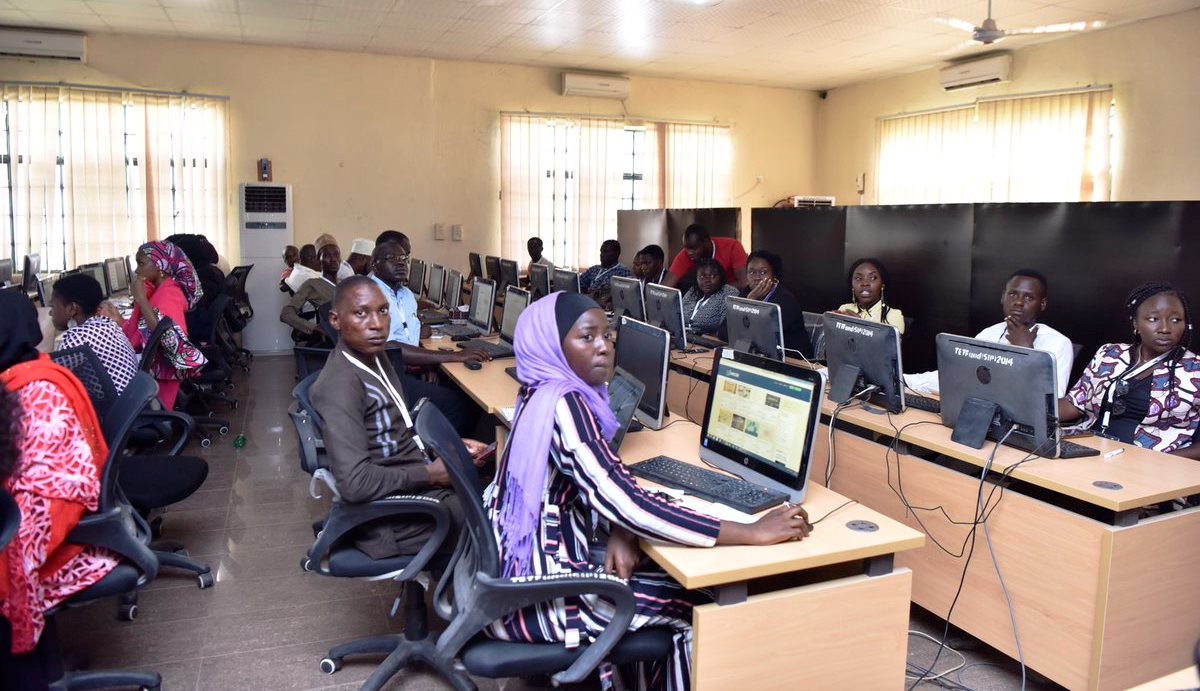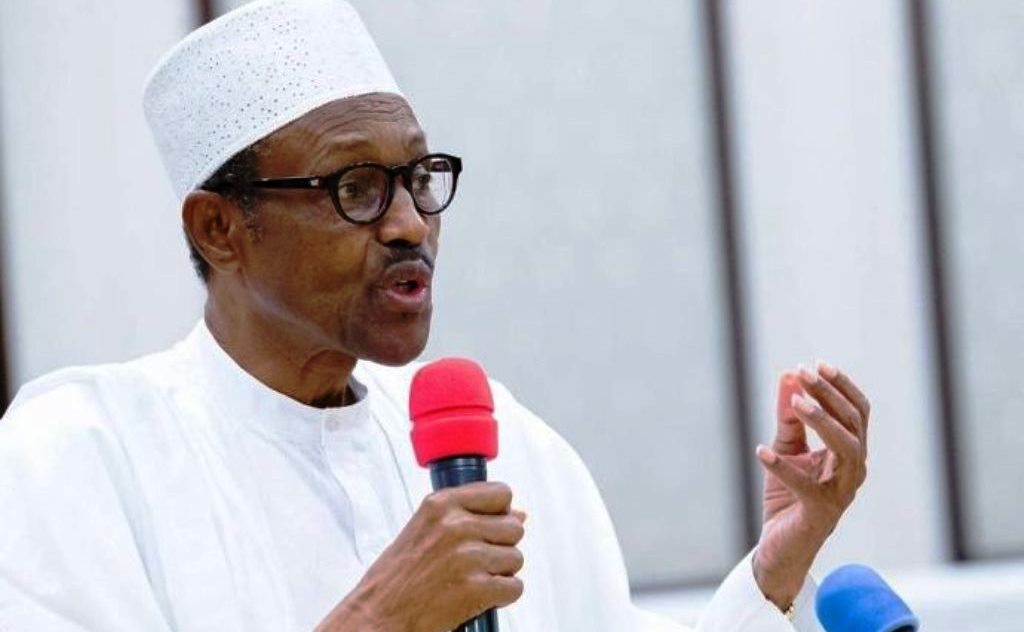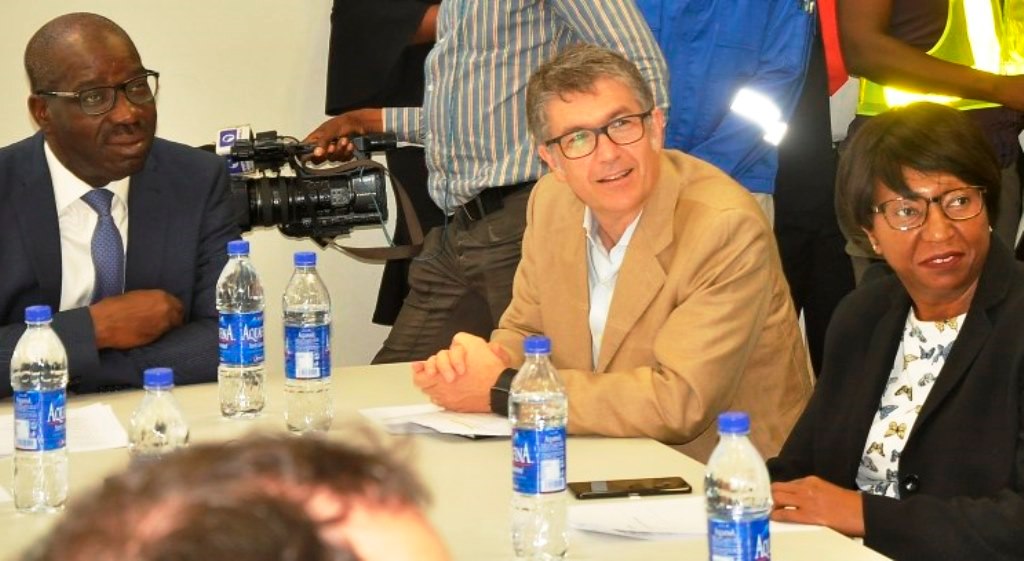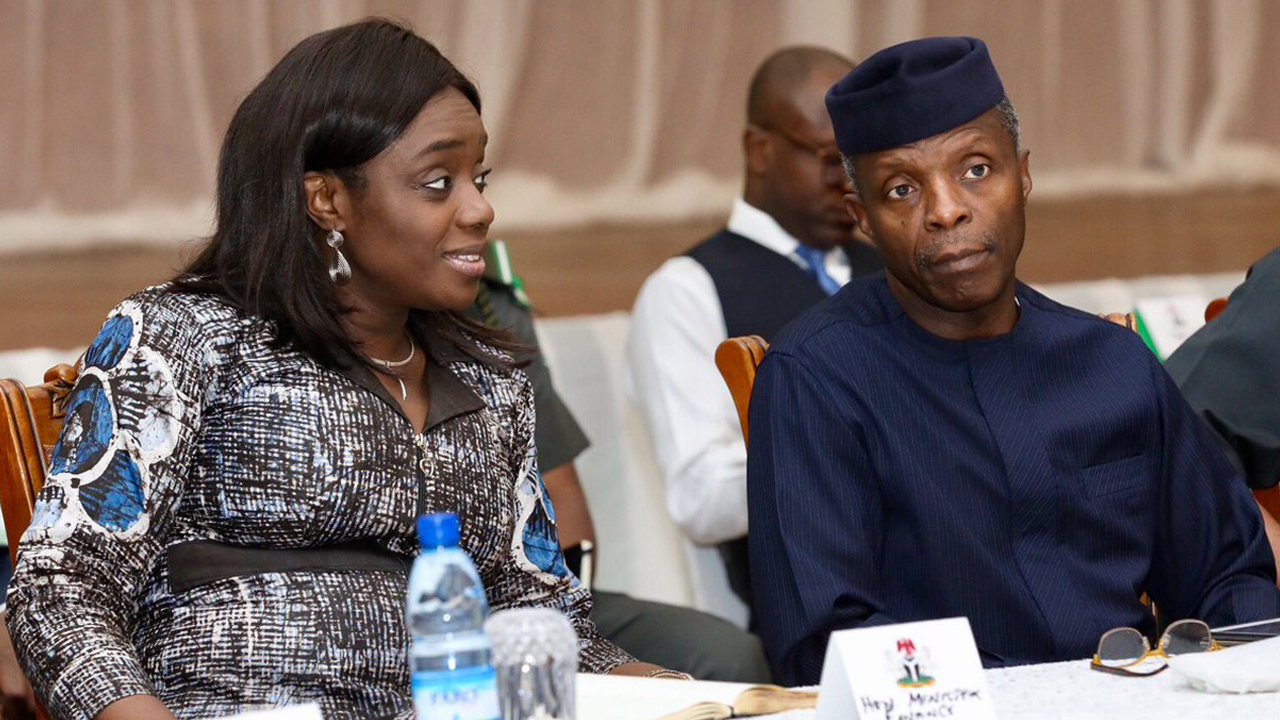Following ranking of Nigeria among the seven worst countries in the newly released World Bank’s Human Capital Index report, the federal government (FG) has called on all stakeholders to find country-led solutions to the critical human capital challenges facing the nation.
TheNewsGuru (TNG) reports Minister of Finance, Zainab Shamsuna Ahmed, who made this known on Sunday, said some of the challenges facing the nation include demography, stunting and education.
The World Bank’s Human Capital Index report released on Thursday at the World Bank-IMF Annual Meetings, in Bali, Indonesia, ranked Nigeria 152 out of 157 countries on the list, with the country sharing bottom of the index with countries like Chad, South Sudan, Niger, Mali, Liberia.
The Minister of Finance, who said though data derived for the ranking was from a pre-2015 survey, said “While this is disheartening, it reinforces a call for action already embedded in the ‘Investing in People’ pillar of Nigeria’s Economic Recovery and Growth Plan (ERGP)”.
Zainab said it was in lieu of disheartening reports such as this the National Economic Council (NEC), chaired by Vice President Yemi Osinbajo comprising Federal Ministers and State Governors met on March 2018 in a special session to look at the role of Human Capital Investment in supporting pro-poor programmes and long-term economic growth.
“At the meeting, we formed the Human Capital Core Working Group comprising key agencies of the government, private sector, non-government, and development partners with a mandate to develop a unified vision for Human Capital Development, and to drive implementation of high-impact interventions that complement the ongoing efforts in health and education and poverty alleviation under the ERGP pillar ‘investing in our people,” the Minister recalled.
She stated that “In the immediate future, the Government of Nigeria will focus on high-impact policies and interventions to make dramatic progress in improving human capital. For example, Nigeria is on the cusp of eradicating polio.
“This would be an important accomplishment as the last polio cases were found in the conflict-stricken North-East states of Borno and Yobe. Other more complex human capital challenges like demography, out-of-school children, learning quality, under-five child mortality, youth employment, and women empowerment will require sustained long-term efforts”.
The Minister noted that the ERGP’s vision for a healthy, educated, productive, and resilient population is ambitious but necessary to ensure the nation can grow and compete in the economies of the future, reduce poverty and achieve peace and stability.
“To address these challenges, the Federal Government will continue to empower States to identify and implement programmes that will allow for citizens to access their right to basic health and education while holding States accountable to deliver results.
“We call on all stakeholders, including community service organizations, the private sector, traditional leaders and development partners, to foster a national dialogue and work together with Government to find country-led solutions to the critical human capital challenges facing the nation. Some of the challenges include demography, stunting and education,” she stated.
Tag: World Bank
-
Human Capital Index: FG reacts to World Bank ranking of Nigeria
-

Nigeria ranks 152 out of 157 countries on World Bank’s Human Capital Index
Nigeria has been ranked among the seven worst countries in the newly released World Bank’s Human Capital Index.
In the index that was released on Thursday at the World Bank-IMF Annual Meetings, in Bali, Indonesia, Nigeria ranked 152 out of 157 countries on the list.
Nigeria shared the bottom of the index with countries like Chad, South Sudan, Niger, Mali, Liberia.
According to the World Bank Group president, Jim Yong Kim, Nigeria is an example of an oil-rich country that neglected its education system.
Guardian UK quoted him as saying that Nigeria spends less than four per cent of her Gross Domestic Product on education.
He added that even then, most of the funds come from the World Bank and other donors, with only a small amount from the finance ministry.
Kim said, “Too many African countries say they are working hard to get rich and then they will spend on health and education. What we are saying is that they need to focus on health and education now.”
Meanwhile, a statement by the World Bank revealed that the HCI shows that 56 per cent of children born today across the world will lose more than half their potential lifetime earnings because governments are not currently making effective investments in their people to ensure a healthy, educated, and resilient population ready for the workplace of the future.
“For the poorest people, human capital is often the only capital they have,” World Bank Group President Jim Yong Kim said.
“Human capital is a key driver of sustainable, inclusive economic growth, but investing in health and education has not gotten the attention it deserves. This index creates a direct line between improving outcomes in health and education, productivity, and economic growth. I hope that it drives countries to take urgent action and invest more – and more effectively – in their people.
“The bar is rising for everyone,” Kim added. “Building human capital is critical for all countries, at all income levels, to compete in the economy of the future.
“The Human Capital Index measures the amount of human capital that a child born today can expect to attain by age 18, given the risks of poor health and education that prevail in the country where he or she lives.”
The Index measures each country’s distance to the frontier of complete education and full health for a child born today. The measure includes survival, school and health. -
BREAKING: World Bank admits misleading Nigeria to ignore education, health sectors
The World Bank says it “has to take some responsibility’’ for advising Nigeria and other African countries to invest more in roads, railways and energy rather than in education and health.
The World Bank President, Mr. Jim Yong Kim, made this known while briefing the media after the launch of the 2018 Human Capital Index, which ranked Nigeria 152nd out of 157 countries believed to be committed to investing in human capital.
Kim briefed the media on Thursday at the ongoing International Monetary Fund and World Bank Group Annual Meeting in Bali, Indonesia.
“We provide quite a bit of support for Nigeria in terms of health budget. But we feel that the overall spending on health is just far too low, 0.76 per cent of GDP.
“Also, the educational outcomes in Nigeria are very very poor.
“Nigeria is one of the most important countries not only in Africa, but in the world and so we feel that it will be extremely important for Nigeria to really go on a different level altogether in terms of their commitment to investing in human capital.
“I think that the World Bank has to take some responsibility for having emphasised hard on infrastructure, roads, rails, energy for a very long time and I think that changed 20 years ago.
“But there is still then the bias that says we will invest in hard infrastructure and then when we grow rich, we will have enough money to invest in health and education.
“We are now saying that that’s really the wrong approach, that you’ve got to start investing in your people right now.’’
HCI seeks to raise awareness and increase demand for interventions to build human capital and accelerate better and more investments in people.
Kim said that through the International Development Association, the World Bank had, since 2015 increased funding for Nigeria and other African countries towards alleviating poverty.
The message here is that Heads of State and Ministers of Finance have to take responsibility.
“What has happened is in many African countries, if they don’t receive grant-based financing, they just simply don’t spend on health and education.
“So we hope that this is a loud wake-up call for leaders throughout the African continent and especially in Nigeria.”
According to the human capital index, children born in Nigeria stand the chance of being 34 per cent as productive when they grow up as they will be if they enjoy complete education and full health.
Children in Nigeria can expect to complete 8.2 years of pre- primary, primary and secondary school by age 18.
However, when years of schooling are adjusted for quality of learning, this is only equivalent to 4.2 years, showing a learning gap of 4 years.
The World Bank report on adult survival rate across Nigeria showed that only 65 per cent of 15-year-olds would survive until 60 years of age.
The News Agency of Nigeria reports that the 2018 Annual Meetings of the IMF and WBG brings together experts to discuss issues of global concern, including the World Economic Outlook, poverty eradication, economic development and aid effectiveness.
-
Ahmed, Emefiele join other economic experts at IMF/World Bank meeting
The Minister of Finance, Mrs. Zainab Ahmed and the Central Bank of Nigeria governor, Mr. Godwin Emefiele, will join other economic experts from around the world to discuss issues affecting the global economy.
Discussions would take place under the auspices of the World Bank Group and the International Monetary Fund.
The 2018 Annual Meeting of the IMF and the World Bank would bring together ministers of finance, central bank governors, parliamentarians, private sector executives as well as representatives from civil society organisations and the academia.
The experts would discuss issues of global concern, including the world economic outlook, poverty eradication, economic development and aid effectiveness.
The meeting would also feature seminars, regional briefings, press conferences and other events with a focus on global economy, international development and the world’s financial system.
The meetings will hold between October 8 and 14.
Nigeria attends the meeting each year because of the quantum of investments and technical assistance it receives from both the IMF and the World Bank.
Although Nigeria currently has zero loans with the IMF, it enjoys technical support from the organisation. -
World Bank cuts Nigeria, South Africa, others’ growth forecast to 2.7%
The World Bank has cut its economic growth forecast for Nigeria and other sub-Saharan Africa countries for this year to 2.7 per cent from an earlier forecast of 3.1 per cent.
The bank said on Wednesday that the cut was mainly because of slower-than-expected growth in the continent’s bigger economies, according to Reuters.
It said the slower pace of the recovery in sub-Saharan Africa was explained by the sluggish expansion in the region’s three largest economies − Nigeria, Angola and South Africa.
The region, which had posted a fairly fast average growth rate in the years leading up to 2015, suffered a loss of momentum in economic output after commodity prices crashed in 2015-16.
In April, the World Bank had predicted that the recovery would gather pace this year, with average growth expected at 3.1 per cent, up from 2.3 per cent last year.
Lower oil production in Angola and Nigeria offset higher oil prices, and in South Africa, weak household consumption growth was compounded by a contraction in agriculture, the World Bank said.
The rest of the countries in the region have been growing steadily this year, the bank said, including those that do not depend on commodities, such as Ivory Coast, Kenya and Rwanda.
The World Bank’s Chief Economist for Africa, Albert Zeufack, urged governments in the region to stop wasting money and instead boost productivity to support the region’s economic recovery.
Zeufack said, “High public debt in some countries in the region, combined with weakening currencies and rising interest rates, can endanger their ability to service those debts.
“Policymakers in the region must equip themselves to manage new risks arising from changes in the composition of capital flows and debt.”
-

Digital skills: World Bank pledges support for Kaduna youth
The World Bank on Thursday pledged to support Kaduna State Government efforts in equipping youth with digital skills to tap from the income generation potential of virtual economy.
Mr Rachid Benmessaoud, the World Bank Country Director, Nigeria, African Region made the pledged on Thursday through a video message played at the close of the three-day training of 900 youths on the use of digital platforms to earn income supported by the bank.
The training tagged: “Click-On Kaduna” was one of the state’s initiatives to drive job creation.
The training was specifically designed to tackle unemployment while providing youth access to the virtual economy that allows for the exchange of virtual goods, currencies, digital labour and professional services for a corresponding fee.
He said that the training was first in the series of more training for Nigerian youth with a view to integrating them into the digital economy platforms for income generation.
Benmessaoud said that very soon the bank would organised a six months digital entrepreneurship training in Kaduna with focus on the youth.
He said that the gesture was to support the Kaduna State Government’s effort in equipping the youths with the needed information and communication technology skills to tap from employment opportunities in virtual economy.
According to him, the virtual economy holds unquantifiable employment opportunities and job creation for the huge unemployed youth in the country.
“It is apt, therefore, to improve the skills of the youth to tap from various opportunities presented by numerous online platforms for income generation.
“We will be doing this because we care about creating jobs for young people.”
He thanked the Kaduna State Government and other partners for making the three-day training a huge success.
Muhammad Abdullahi, the Commissioner, Kaduna State Planning and Budget Commission urged the beneficiaries to make the best use of the skills acquired not only to earn income but create more jobs.
“We are taking the digital job seriously because it is the driver of development and the leading agents in job creation,“ Abdullahi said.
He thanked the World Bank, Rockefeller Foundation, Digital Naija and other partners who supported the training.
The Commissioner for Women Affairs and Social Development, Hajiya Hafsat Baba encouraged the beneficiaries to link up with one another, share experiences and opportunities.
900 youths from Kaduna, Kano, Plateau states and the Federal Capital Territory benefited from the training on how to utilise digital platforms to promote businesses and earn income.
They were also guided on how to set up shops on online and to network with local platforms.
-

Extreme poverty: FG rubbishes World Poverty Clock projections
The federal government has brushed off projections by World Poverty Clock compiled by Brookings Institute that showed Nigeria has overtaken India as the country with the largest number of extremely poor people in the world.
The Ministry of National Planning Commission in a statement on Monday said the methodology of World Poverty Clock is based on a lot of assumptions and that the projections are not based on the Nigerian reality.
Read full statement:
The attention of the Ministry of National Planning Commission has been drawn to a recent publication on the World Poverty Clock by World Data Lab in Vienna, Austria, indicating that Nigeria’s poverty rating was getting worse.
The Ministry of National Planning Commission has reviewed this report and would like to assure Nigerians that the report is not based on any recent surveys of the poverty levels in Nigeria and cannot be relied upon as a factual indication of recent trends in Nigeria.
The authors of the report claim that the Poverty Clock is an online analytical/visualization tool that shows the number of people living in extreme poverty worldwide and count(s) “excess” poverty – the gap between the actual number who have escaped poverty since end-December 2015 and the hypothetical number of who should have escaped in order for the world to be on-track to reach the global target of ending poverty by 2030.
It should be noted that in deriving its poverty estimates, the Poverty Clock does not, and in this case did not, directly rely on household survey data as national statistical offices in most countries do. Instead, as stated in their methodology, they rely on models to estimate poverty rates across countries using data provided by national governments to international agencies.
The models make assumptions on expected future changes in income, IMF medium-term growth forecasts and long-term projections and analysis developed by the OECD, all of which are significantly influenced by uncertainty. It is, in essence, just a model based on a lot of assumptions which cannot substitute for field work involving actual data collected from households in a consistent and representative way.
In the specific case of Nigeria, the Poverty Clock uses as baseline the General Household Survey which was not designed to measure poverty indicators accurately and follows a methodology that can be misleading if relied upon for poverty estimates.
In line with extant laws, the Nigeria’s National Statistical Agency remains the statutory agency of government with responsibility for producing Nigeria’s official statistics, including poverty estimates. Like several other countries, Nigeria’s poverty estimates are obtained from the National Living Standard Survey (NLSS) undertaken every five years, and which was last conducted in 2010.
While several other household surveys are routinely conducted by the Nigeria’s National Statistical Agency, none are as comprehensive as the NLSS, which is the appropriate household survey to determine poverty estimates. The next round of the NLSS is currently being undertaken by Nigeria’s National Statistical Agency, in collaboration with the World Bank, and this will be concluded in 2019. There is currently no other comprehensive household study on current poverty trends in Nigeria.
It is therefore pertinent to note that the World Poverty Clock is a model-based estimation of poverty, relying on projections and assumptions that cannot substitute for actual household survey approach which most countries adopt.
This implies that it is not possible to conclude Nigerians poverty position until the Nigeria’s National Statistical Agency completes the NLSS, as no comprehensive field work has been done in Nigeria, and among Nigerian households, as is required according to standard international methodology.
It is however important to point out that the Federal Government of Nigeria, in line with strategies outlined in the Economic Recovery and Growth Plan (ERGP), remains committed to promoting sustainable economic development through various social investment schemes that will yield positive impacts on poverty and unemployment; and will consequently change the trajectory of poverty in the country.
Apart from the Social Investment Programme (SIP) which has engaged a lot of youths in entrepreneural and skills training alongside the school feeding programme which has provided balanced meals for millions of school children, government believes that the fastest way to reduce the level of poverty and increase social inclusion is to create jobs.
In the ERGP this administration is committed to creating 15 million jobs in four years by 2020 by developing labour intensive sectors such as agriculture, manufacturing, housing and construction.
Government is also committed, and has been vigorously expanding public works in infrastructure, such as railways, roads and bridges, which is catalysing economic growth, as is evident from the turn-around in the GDP growth numbers.
In order to support and encourage private sector investment, government has placed emphasis on Made-in-Nigeria products; and public procurement is focused on local content and labour-intensive production processes. Government is also enhancing the ease of doing business and tackling power challenges to attract private sector investment that will in turn create jobs and further reduce poverty levels across the country.
The impact of these efforts, amongst others, will certainly translate to a reduction of the poverty levels in Nigeria. After emergence from recession in 2017 all major economic indices have turned positive in the last 12 months.
We are therefore optimistic that any poverty survey carried out now will show that this Administration is succeeding in turning around the negative trajectory that the economy had been on before we took over. And that this turnaround will succeed in lifting millions of Nigerians out of poverty.
-

Edo becomes model for devt funding in developing countries
Following the successes recorded in executing major infrastructure and social development projects in the state, especially the Edo-Azura Power Project, the World Bank has said that Edo State has become a model for development financing at the sub-national level in developing countries.
World Bank Executive Director, Angola, Nigeria and South Africa sub-group, Ms. Bongi Kunene, gave the verdict during a lunch organised for 10 visiting World Bank Executive Directors, at the Government House, Benin City, the Edo State capital.
She said that the Bretton Woods institution is impressed with the level of work done through its various projects as well as the partnership that birthed the Edo-Azura Power Project.
Noting that the state is among the two sub-national governments that accessed its budget support instruments, she said the projects executed in the state are not just impressive but meet the expectations of the visiting delegation.
She added that the World Bank is willing to “partner with the state on future projects, as long as the projects are in line with the Bank’s focus.”
On the Edo-Azura Power Project, she said, “The project is transformational. It gives us a scope of what we can do together. We are delighted to see solutions. We would want to commit ourselves to projects that make sense and are in line with our focus.”
She said more of such projects can be executed if governments are willing to cooperate with the bank in granting necessary approvals, allowing for thorough impact assessment and are open to multilateral financing arrangements.
Edo State Governor, Mr. Godwin Obaseki, on his part said that with the 450MW Edo-Azura Power Project now on stream, the state wants more investors for the Benin Industrial Park and technology innovation hubs.
He said the enabling environment to host diverse investors is now available, especially with the provision of power by companies like Edo-Azura Power.
According to the governor, “Power is the key to industrialisation and development. We need to extend the benefits of this investment. Now that we have power, what are we going to do with it? The next set of projects are those that have to rely on this key infrastructure we have just created. So, we would be looking at the Benin Industrial Park, building infrastructure to encourage and support manufacturers to come in. We are looking at innovation hubs; we want to use the factor and advantage of 24/7 electricity to encourage technology groups and companies to be located in Edo State.”
-

World Bank officials to meet Osinbajo, Govs, Adeosun over projects in Nigeria
A World Bank Mission, comprising of 10 Executive Directors, is expected in Nigeria on Wednesday to hold high-level discussions with the Vice President, Prof. Yemi Osinbajo, SAN; Minister of Finance, Mrs. Kemi Adeosun and some Governors over the Bank’s projects in the country.
In the World Bank Mission are the Bank’s Executive Directors for Switzerland, France, Italy, Nordic, Peru, Germany, South Africa (representing Angola, Nigeria and South Africa), Burkina Faso (representing Francophone Sub-Saharan Africa), Zimbabwe (representing Anglophone Sub-Saharan Africa), United Kingdom and Indonesia.
The delegation will discuss ongoing World Bank projects and the country’s development priorities with the Vice President, Minister of Finance and the Governors.
The officials will also meet the organised private sector in Lagos as well as undertake a tour of LAPO Microfinance project in Lagos and Azura Power Plant in Edo State.
The visit is expected to provide a first-hand impression of the challenges that both the Federal and State Governments face in implementing development projects as well as ensuring good governance overall.
It will further enhance the goal of the Bank for member-countries and the effectiveness of the Executive Directors in providing the necessary support.
-
Senate working to grow digital financial technology in Nigeria – Saraki
President of the Senate, Bukola Saraki, on Thursday said that the Senate is working to ensure the growth of digital financial technology (FinTech) popularly known as digital financing in Nigeria.
Saraki, according to a statement by his Chief Press Secretary, Sanni Onogu, in Abuja, stated this in his address before the Africa Finance Forum, organized by the Corporate Council on Africa, at this year’s Spring Meeting of the World Bank and International Monetary Fund (IMF) holding in Washington D.C.
He said that the Senate is desirous to see Nigerian banks expand with capacities to create opportunities for financial services penetration and support for enterprises.
He further averred that the Red Chamber, through its Committee on Banking, Insurance and other Financial Institutions is engaged in legislative interventions to ensure financial inclusion for all, “especially in the rural areas where a large percentage still remains unbanked by bridging services between the banking and telecommunications sectors.”
While commending the Corporate Council on Africa for convening the event and its inspired focus on the FinTech environment on the African continent, Saraki emphasized that the Senate will continue to encourage innovation in the Financial Technology (FinTech) space in Nigeria.
He also noted that Financial Technology has enjoyed a tremendous upsurge in the global economy and is currently creating a lot of excitement in Africa in general, and Nigeria in particular, as the next frontier in the industry.
Saraki said: “The net impact of our legislative interventions; through the relevant Committee’s oversight and engagement will be to expand the ability of our banking sector to facilitate digital financing, expand the opportunity for financial services penetration and reach with the SMEs, and for enterprise support.
“We believe that these will give a fillip to the development of innovation and private sector capacity across the country. You will agree with me that innovation is the engine that powers financial inclusion. We are therefore working assiduously to encourage innovation in the FinTech space in Nigeria, and we shall continue to do so,” he stated.
He noted that challenges militating against the growth of FinTech in Nigeria include but not limited to issues about consumer protection, intellectual property, concerns about money laundering and fraudulent activity.
He said: “FinTech growth requires us to pay attention to all of these, and to come up with regulatory frameworks that will safeguard our people.
“Therefore, as we seek to improve the business environment for SMEs and tech entrepreneurs in Nigeria, we are also committed to passing legislation that strikes a balance between facilitating the sector and maintaining a secure financial system.
“We are continuously working to reframe our payment systems, strengthen mechanisms for electronic commerce, reduce non-performing loans and strengthen the credit market for SMEs through a broad range of legislative interventions,” he said.
He said the Senate has continued its legislative interventions by passing the Electronic Transactions Act; the Bankruptcy and Insolvency Act (Repeal and Re-Enactment) Bill; the Federal Competition and Consumer Protection Commission Act.
He said while the Consumer Protection Commission Act creates a Consumer Protection Commission to safeguard consumers from fraud and price manipulation; the Consumer Credit Agency Act allows lenders to better assess the credit worthiness of loan applicants.
He stated that the Credit Reporting Act, which has been signed into law, will enable the market reduce credit delinquencies, serve as a behaviour change and institutional framework that brings sanity into the credit community which will inspire confidence in the Nigerian market by drawing in more participants.
“The Secure Transactions in Movable Assets is the signature bill in our support of SMEs,” Saraki stated. “It frees up capital and creates opportunity for the funding of SME ventures as never seen before in Nigeria.”
“With this law, we have created a new stream of opportunity for SMEs to access capital by using movable goods including small machinery, cell phones and even household items as collateral. The implication of this is enormous in terms of dealing with capital formation and poverty eradication.
“Our work is not exhaustive and will continue to adapt to changes that innovation in technology brings.
“We are confident in the signals we are sending to the world, that Nigeria fully intends to key into the astronomical growth of the FinTech industry – and to harness its full potential for the benefit of the largest economy in Africa; and we welcome any partnerships that ensure that this happens.